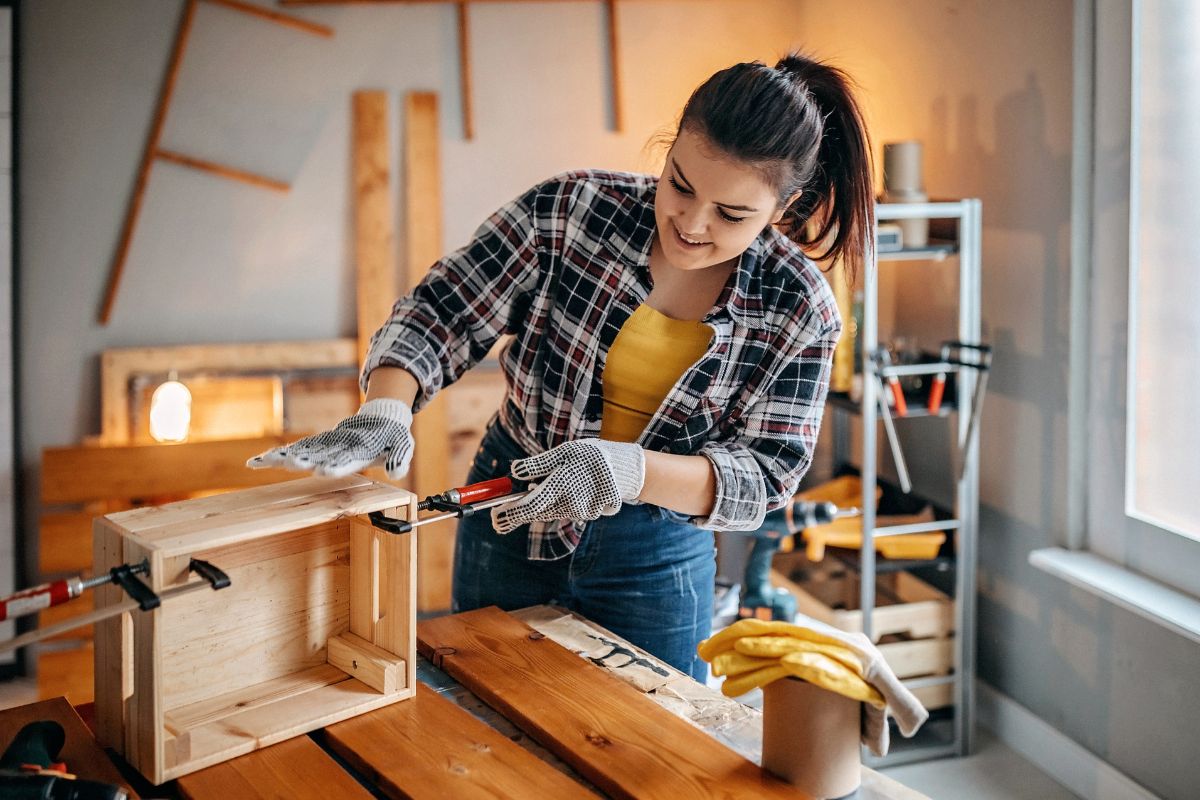How To Learn DIY Skills So You Can Take On Multiple Projects In Your Home


In a world where self-sufficiency and personal empowerment are highly valued, mastering do-it-yourself DIY skills has become essential to modern living. Learning how to tackle various projects in your home saves you money and provides a sense of accomplishment and satisfaction. Whether you’re a beginner or looking to expand your existing skills, this guide will walk you through the steps to become a proficient DIY enthusiast.
Table of Contents
Before diving into the DIY world, having a clear vision of what projects you’d like to tackle is crucial. Whether revamping your kitchen, building a bookshelf, or creating a cozy outdoor space, having a specific goal will guide your learning journey. Identify areas in your home that require improvement and start with smaller projects before progressing to more complex ones.
Every DIY project begins with the right tools. Invest in high-quality tools suitable for your skill level and the projects you plan to undertake. Basic tools such as a hammer, screwdrivers, pliers, and a tape measure are essential for starters. As you advance, consider adding power tools like a drill, saw, and sander to your collection. Quality tools make the job easier and ensure safety and precision, helping you achieve the best possible results in your DIY skills project. There are many reputable sellers of tools and equipment throughout the UK, such as Workplace Interior Shop, where you can get everything that you need to complete your DIY task to the highest standard.
Thanks to the internet, a wealth of information is available to help you learn DIY skills. Explore online tutorials, blogs, and video channels that cover a wide range of projects. Websites like YouTube, DIY Network, and Instructables offer step-by-step guides and practical tips for beginners. Additionally, consider enrolling in local workshops or community classes to receive hands-on training and guidance from experienced DIYers.
Safety should be a top priority when engaging in DIY projects. Familiarize yourself with the proper use of tools and equipment, and always wear appropriate safety gear such as goggles, gloves, and hearing protection. Be cautious of your surroundings and follow recommended safety guidelines for each project. Taking the time to prioritize safety ensures a positive and accident-free DIY experience.
Begin your DIY skills journey with small, manageable projects to gradually build your confidence and skills. Simple tasks like painting a room, assembling furniture, or fixing a leaky faucet are great starting points. As you gain experience and proficiency, you can gradually take on more challenging projects. Starting small also allows you to learn from your mistakes without the added pressure of a large and complex undertaking.
Mistakes are inevitable in any learning process, and DIY is no exception. Instead of getting discouraged, view mistakes as valuable learning opportunities. Analyze what went wrong, understand the cause, and figure out how to prevent similar issues in the future. Learning from mistakes enhances your skills and contributes to your overall growth as a DIY enthusiast.
As you accumulate experience, consider building a dedicated DIY toolkit tailored to your needs. Organize your tools to make them easily accessible and take inventory regularly to ensure you have everything you need for upcoming projects. A well-organized toolkit saves time and enhances your efficiency as you tackle various tasks around your home.
Connect with like-minded individuals by joining DIY communities both online and offline. Social media platforms, forums, and local community groups provide opportunities to share your projects, seek advice, and learn from the experiences of others. Engaging with a DIY skills community creates a supportive network that inspires and motivates you to take on new challenges.
When planning your DIY skills projects, set realistic goals based on your skill level and available time. Avoid overwhelming yourself with overly ambitious projects that may lead to frustration. Break down larger tasks into smaller, more manageable steps, and celebrate your achievements. Setting realistic goals ensures a positive and enjoyable DIY skills experience.
Keep a record of your DIY skills journey by documenting each project. Take photos, write down your experiences, and note any challenges you encountered and how you overcame them. This documentation is a valuable reference for future projects and allows you to track your progress over time. Sharing your experiences with others can also inspire and encourage fellow DIY enthusiasts.
Learning DIY skills is a rewarding and empowering journey that opens possibilities for transforming your home. By starting with a vision, investing in quality tools, educating yourself, and practising safety, you can gradually build the confidence and expertise needed for various projects. Remember to start small, learn from mistakes, and connect with DIY communities for support and inspiration. With dedication and a willingness to learn, you will soon master DIY skills and create a home that reflects your style and creativity.
Sign up to receive our email, delivering the latest stories straight to your inbox.
